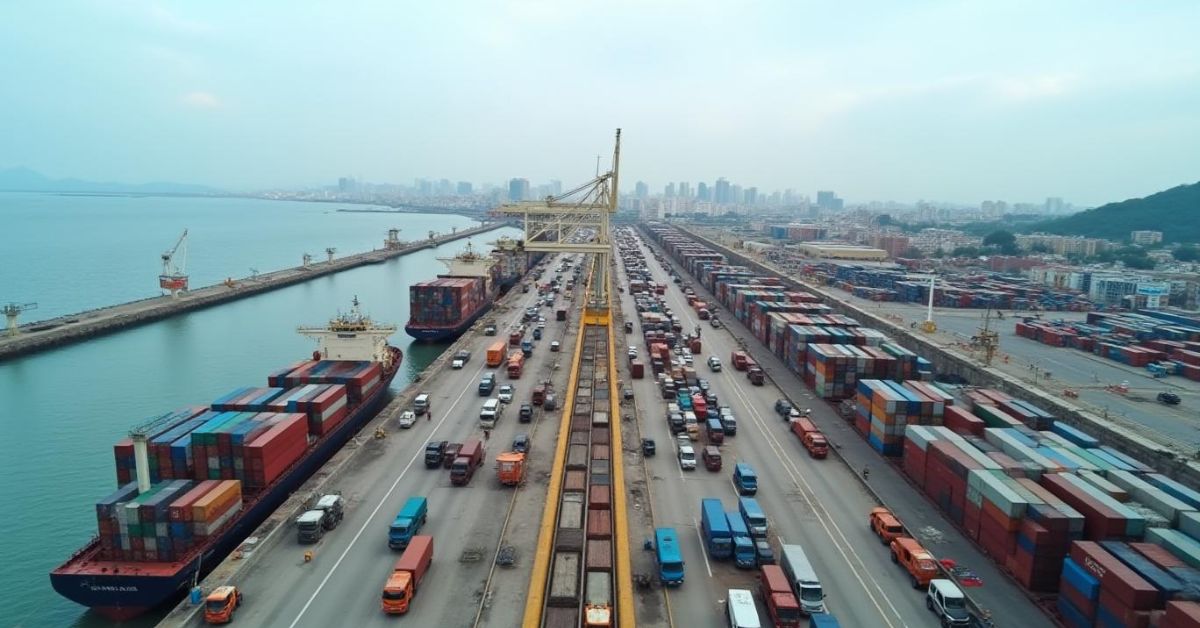
In recent trends, the United States government under President Donald Trump has issued a sturdy caution regarding its policies in the direction of countries shopping for Oil Buyers from Venezuela, which has been grappling with monetary instability and sanctions. The U.S. Administration has threatened to impose a 25% tariff on any state purchasing oil from Venezuela, further escalating tensions between the U.S. And diverse nations, which incorporates India. This ability pass has raised issues for India, considered one of the largest shoppers of oil globally and a country that has persisted to preserve trade members of the own family with Venezuela however worldwide pressures.
Context of the US Threat on Venezuelan Oil
The United States has been outspoken in its efforts to impose stringent sanctions on Venezuela in an try and destabilize the authorities of President Nicolás Maduro, whom the U.S. Regards as a dictator. These sanctions have notably impacted the Venezuelan economic device, which has been suffering with hyperinflation, meals shortages, and splendid poverty. The U.S. Objectives to limit Venezuela’s oil exports, a vital income deliver for the government. However, international places like India, China, and Russia have persisted to hold a few degree of engagement with Venezuela, in particular in terms of oil imports.
India, a swiftly developing financial gadget with great power wishes, has been one of the worldwide locations that has bought Venezuelan crude oil. Venezuela has lengthy been a supplier of oil to India, as its crude is quite inexpensive, and it gives an possibility for India to diversify its oil belongings beyond the Middle East. Despite the political strain from the U.S., India has opted to buy Venezuelan Oil Buyers beneath the provisions of worldwide regulation, often mentioning electricity protection and the need to preserve sturdy oil materials for its developing industrial base.
The Potential Impact of the 25% Tariff
The proposed 25% tariff on Venezuelan oil by way of the U.S. Authorities need to have a ways-reaching consequences for India’s energy coverage. Given that India is heavily reliant on oil imports to fulfill its electricity desires, any growth in the charge of oil need to appreciably have an impact on its balance of bills and put additional stress on its financial gadget. Oil charges have always been a first-rate concern for Indian policymakers, specially as the united states is not a main producer of oil and is predicated upon heavily on imports.
A surprising tariff must pressure India to reconsider its engagement with Venezuela, which may embody the want to diversify its sources of crude oil. Countries like Iraq, Saudi Arabia, and Iran have been traditional providers to India, but the state of affairs may want to get complex as India continues to pursue its strength desires at the same time as trying to maintain a sensitive stability between its relationships with the U.S. And international places like Venezuela. The risk of charge lists may activate Indian oil businesses to are looking for alternative belongings of Oil Buyers, however this will bring about higher charges and a more risky power market.
Moreover, the economic effect of a 25% tariff may want to probably exacerbate India’s already fragile economic state of affairs. With growing oil expenses often most important to higher inflation and an extra economic deficit, Indian policymakers are probably left with tough choices concerning a manner to cope with both their strength needs and the domestic financial annoying situations they’ll be handling. India has historically been capable of negotiating favorable phrases with oil-exporting worldwide places because of its size and market energy, but if the U.S. Actions forward with its tariff perception, this could exchange the dynamic significantly.
Diplomatic Strain among India and the United States
The U.S. Decision to threaten a tariff on Venezuelan oil shoppers additionally will increase worries about the wider diplomatic courting among India and america. While India has maintained strong ties with the U.S. In modern years, especially in regions which incorporate defense and change, the stress to abide with the resources of U.S. Sanctions towards Venezuela could create widespread friction. India, which has long found an insurance of non-interference within the inner subjects of different international locations, has often resisted external pressures, especially as regards nations like Venezuela, in which India has strategic interests.
India’s stance may be in addition complex thru the fact that the U.S. Isn’t the high-quality actor on the arena degree, and countries like China and Russia are increasing their involvement in Latin America. These geopolitical shifts have substantial implications for India’s foreign coverage because it tries to hold a balanced technique between its participants of the own family with the U.S. And different international powers. India can also locate itself beneath pressure to navigate this more and more complicated geopolitical panorama, balancing its oil deliver desires with diplomatic concerns.
Future Outlook and Indian Strategy
Given the U.S. Chance, India may also have to re-look at its Oil Buyers procurement technique shifting beforehand. While diversification of oil assets can be a possible prolonged-term technique, the immediate effect of the tariff on strength expenses may be destabilizing. Indian policymakers may find avenues which include negotiating with the U.S. For exemptions or locating opportunity providers willing to offer oil at competitive costs. Furthermore, India might also strengthen its ties with different oil-generating countries, which includes the ones in Africa and Latin America, that may assist in mitigating the hazard of over-reliance on the Middle East.
India also can maintain diplomatically, stressing the importance of strength protection and the right of sovereign nations to interact in alternate ways without the undue effect of external sanctions. Given the complexities of the global oil marketplace, India need to artwork with worldwide agencies to oppose the U.S. Tariff and push for a greater multilateral technique to dealing with Venezuela.
In the end, the U.S. Hazard to impose a 25% tariff on countries looking for oil from Venezuela represents a fresh challenge for India. While it can activate India to reconsider its oil sourcing techniques, it is able to moreover pressure its diplomatic members of the family with the U.S. As the global electricity landscape keeps to evolve, India will have to cautiously navigate its domestic hobbies, strength safety troubles, and worldwide family participants to keep its power stability and economic boom.






